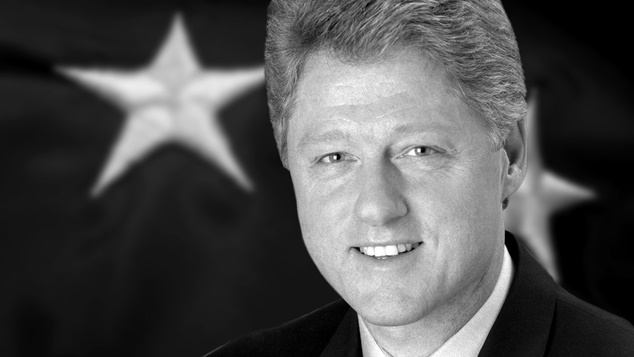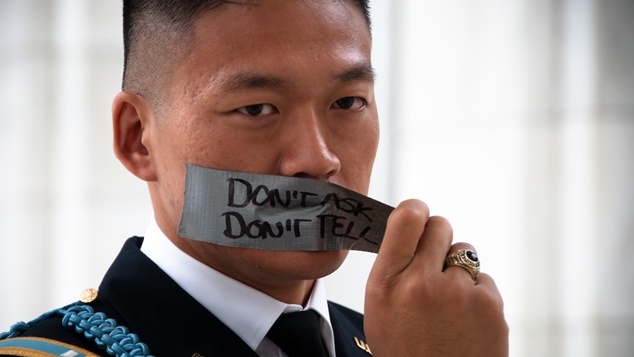The USA implemented it’s ‘Don’t Ask, Don’t Tell’ policy in 1993
On this day in 1993 the USA military implemented it’s ‘Don’t Ask, Don’t Tell’ policy. The new rules prohibited discrimination and harassment of closeted members of the armed forces.
Brought in by the Clinton administration it allowed gay, lesbian and bisexual service members to serve as long as nobody was aware of their sexuality.
However, people who were open about their sexuality were not permitted to join the military, and anyone who disclosed their sexuality while serving would be discharged.

The policy prohibited people who “demonstrate a propensity or intent to engage in homosexual acts” from serving in the armed forces of the United States, because their presence “would create an unacceptable risk to the high standards of morale, good order and discipline, and unit cohesion that are the essence of military capability”
Lesbian, gay and bisexual people had been banned in the US military since the revolutionary wars of the 1700s, and throughout conflicts of the 20th century including World War II, The Korean War and the Vietnam War had been actively enforced. As the gay rights movement grew throughout the 1960’s and 1970’s there was also a growing call to stop discriminating against people serving in the armed forces.
While there was some discussion of the issue during the 1992 President Election campaign which saw Bill Clinton elected to power, it was not a major issue of the campaign. Clinton voiced his support for allowing all people to serve in the military, but the incumbent President, George Bush, dis not engage on this issue.
The death of Allen R Schindler was a catalyst
In October 1992 Allen R. Schindler, who was a Radioman Petty Officer Third Class in the US Navy was murdered in a public toilet in Sasebo, Nagasaki. Schindler had complained about being bullied and had requested to leave the Navy. Schindler’s superiors ordered that he stay onboard his vessel until the separation process was complete.
While his vessel, the USS Belleau Wood, was on it’s way to Japan, Schindler made a prank announcement on the navy’s secure lines. He transmitted “2-Q-T-2-B-S-T-R-8” (too cute to be straight), the message was received by most of the Pacific Fleet. When he was called to appear before officers for disciplinary action Schindler asked for his case to be heard privately, but his request was denied and 200 servicemen heard of his misbehaviour.
He was murdered by Terry M Helvey who was a member of the ship’s weather department. Hervey brutally stomped on his head, his injuries were so brutal that he could only be identified by the tattoos on his arm. At his trial Hervey denied he murdered Schindler because of his sexuality but the prosecution showed that he’d boasted about his motivation after the crime telling colleagues, “I don’t regret it. I’d do it again. … He deserved it.”
The case became a focal point for ensuring better protections for gay, lesbian and bisexual people in the military.
The compromise of ‘Don’t Ask, Don’t Tell’
In 1993 there was debate about changing the laws but military officials argued that it would not be possible to allow gay, lesbian and bisexual people to serve openly in the military. A compromise was reached, harassments based on perceiving someone to be same-sex attracted would no longer be tolerated, and officers would no longer launch investigations into personnel they suspected of being gay, but service personnel who were gay, lesbian or bisexual would be required to keep it a secret.
The policy remained in place until 2010. In 2008 President Barrack Obama pledged during his campaign to repeal the policy. After a protracted negotiation the law removing the ‘Don’t Ask, Don’t Tell’ approach was signed on December 22nd 2010, seventeen years and one day after it was first implemented.

Read OUTinPerth’s interview with Dan Choi
Dan Choi became a figurehead in the debate over Don’t Ask Don’t Tell when he was discharged for being gay. He spoke to OUTinPerth journalist Benn Dorrington back in 2011 just prior to the repeal of the policy coming into affect.
OIP Staff, this post was first published in 2020.





